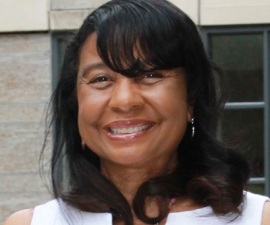

Research Bio
Linda Burton is a preeminent scholar on child welfare and poverty whose program of research is conceptually grounded in life course, developmental, and ecological perspectives and focuses on three themes concerning the lives of America's poorest urban, small town, and rural families: (1) intergenerational family structures, processes, and role transitions; (2) the meaning of context and place in the daily lives of families; and, (3) childhood adultification and the accelerated life course. Her methodological approach to exploring these issues is comparative, longitudinal, and multi-method. The comparative dimension of Burton's research comprises in-depth within-group analysis of low-income African American, White, and, Hispanic/Latino families, as well as systematic examinations of similarities and differences across groups. She employs longitudinal designs in her studies to identify distinct and often nuanced contextual and ethnic/racial features of development that shape the family structures, processes (e.g., intergenerational care-giving) and life course transitions (e.g., grandparenthood, marriage) families experience over time. She is principally an ethnographer, but integrates survey and geographic and spatial analysis in her work. Burton was one of six principal investigators involved in a multi-site, multi-method collaborative study of the impact of welfare reform on families and children (Welfare, Children, and Families: A Three-City Study), directed the ethnographic component of the Three-City Study, and was also principal investigator of an ethnographic study of rural poverty and child development (The Family Life Project).
Linda M. Burton is a former dean of Berkeley Social Welfare.
Research Expertise and Interest
child welfare, poverty
